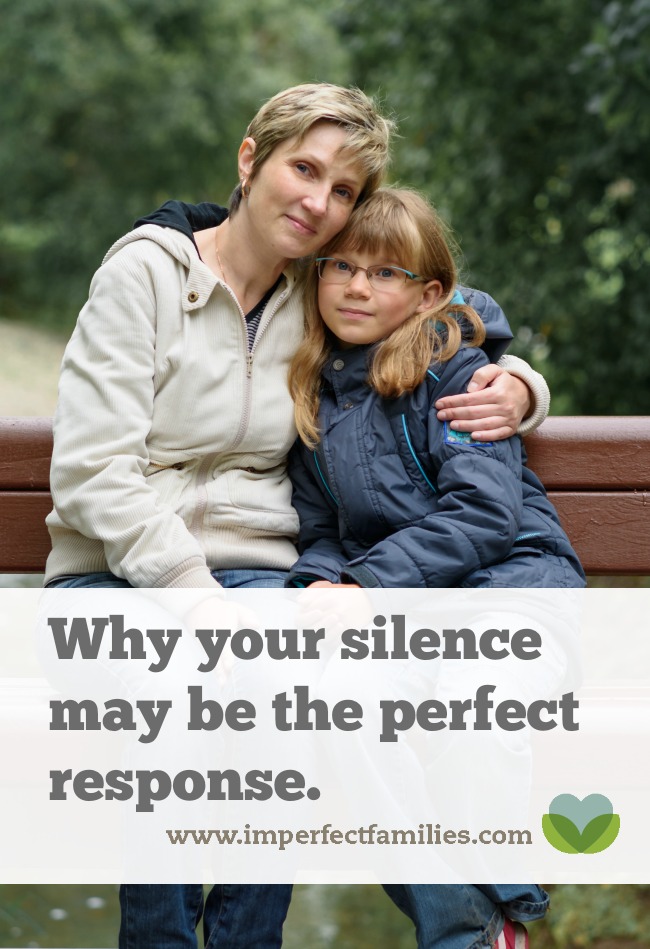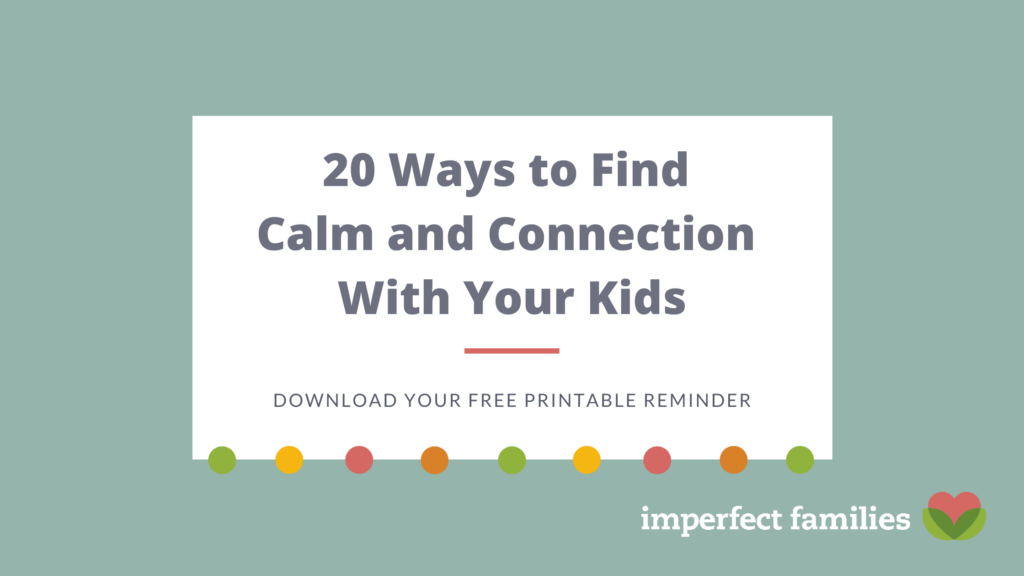
Out of the blue, my daughter announced: “Ashlyn and Tyler don’t talk to me on the bus.”
Shocked and caught off guard, I accidentally made a great parenting decision: I didn’t say anything.
She continued, “I know I’m quiet. Maybe they don’t hear me talk, but I feel left out.”
I glanced her way to let her know I was listening but stayed quiet.
There was more, “They are best friends and they are in the same class…I get on the bus first…I like to sit by the window…”
My heart was breaking. My thoughts were racing, “how dare they ignore my baby!” I wanted to give her advice. Solve her problem. Make her pain stop.
But this day, I gave her my attention silently. And it paid off greatly. My daughter talked freely and openly. She told me random bits of information that I may never have heard if I had interrupted with my own questions or suggestions.
Her sharing lasted about 5 minutes. When she seemed to have emptied all of her emotional baggage, I gave her a hug and asked, “That sounds so lonely. Do you want to talk about ways to get them to pay attention to you?”
She answered, “No. I like looking out the window.”
And that was that.
Supporting with Silence
Staying quiet may go against every fiber in your body. Here are some tips for showing your child support without saying a thing:
- Use Non-Verbal Communication: Make eye contact, nod your head, sit with an open posture, use sounds like, “mmm” to let them know you’re listening.
- Mimic Their Emotion: If they are expressing something sad, show sadness with your face; if it’s an exciting story, open your eyes wide and smile.
- Wait Through the Pause: Resist the urge to jump in when your child stops talking. Continue to sit quietly for a few seconds, they may start talking again.
- Use Physical Touch: Encourage your child to cuddle with you or give them a foot massage while they’re talking, give a high five or a hug.
Know When To Talk
When I teach parents about listening to their children, I often suggest using “active listening.” A technique where you paraphrase back what your child tells you, so they feel heard.
Unfortunately, active listening easily becomes “active talking.” We start out with a paraphrase, “It sounds like you’re feeling left out on the bus.” But instead of leaving it there and waiting for the child to tell us more, we continue talking, “I bet if you just spoke up, they would pay attention to you. Maybe you could talk about your dog…I wonder if they have pets…have you asked them?”
To stay on track, offer a quick paraphrase to make sure you’re getting the story right and then STOP! Return to listening again.
But Wait…The Problem Still Isn’t Solved!
It’s hard to watch our children suffer. We want to save them from difficult situations and rescue them from failure.
When our child talks to us, we have the tendency to think, “My child has chosen to talk to me because they want advice.” In reality, the majority of the time your child is not looking for a solution. They are talking to you because they trust you, love you and want to share some of their life with you.
Instead of assuming that your child is looking for a solution, ask if they’d like help brainstorming some ideas. If they say “no,” don’t push it. Come back to it later, or not at all.
Not every challenge needs a solution, but every child needs someone who is willing to listen.




Comments have been turned off to retain the privacy of all families. If you have a question or comment on the topic, you're always welcome to contact me.